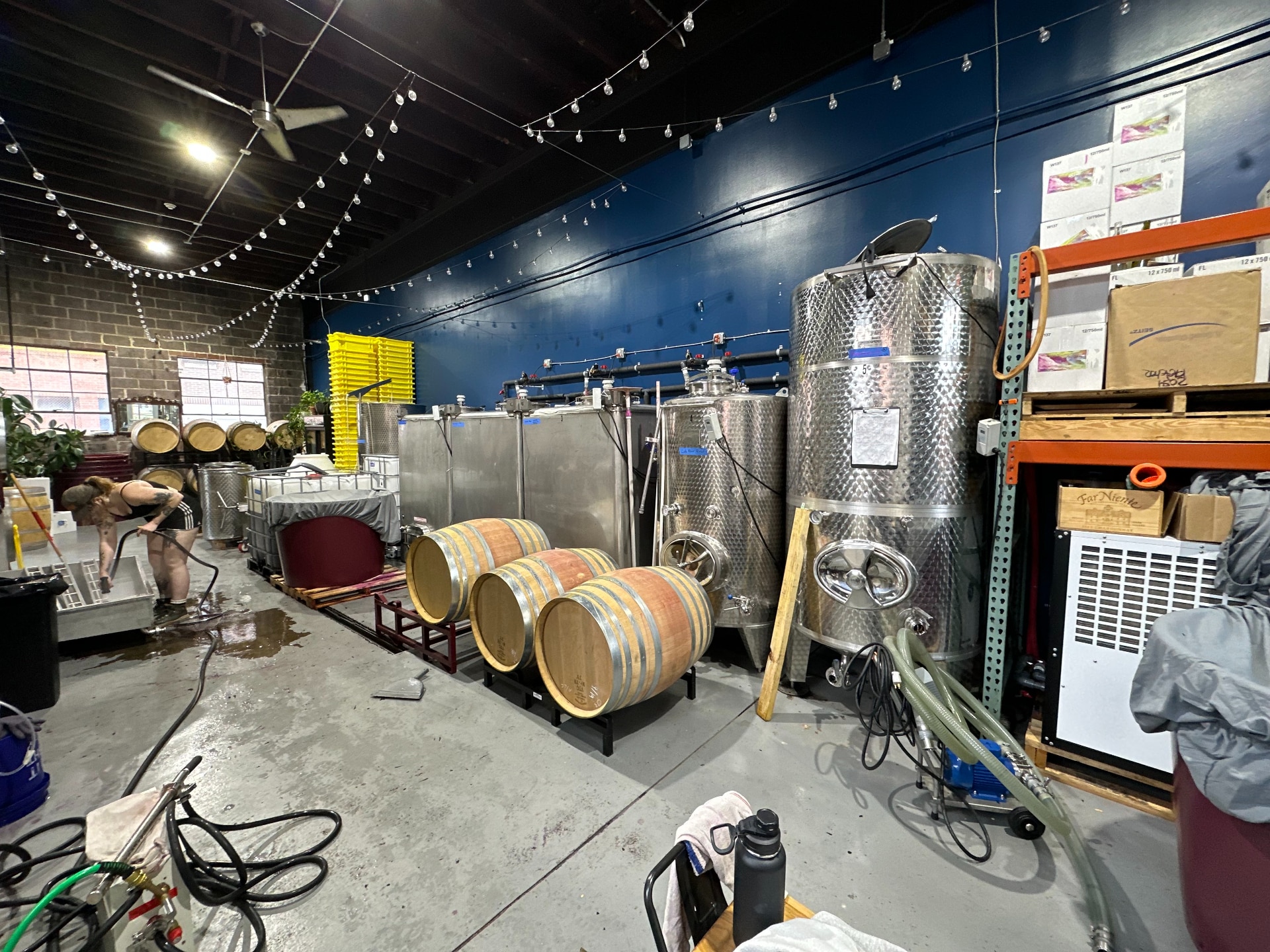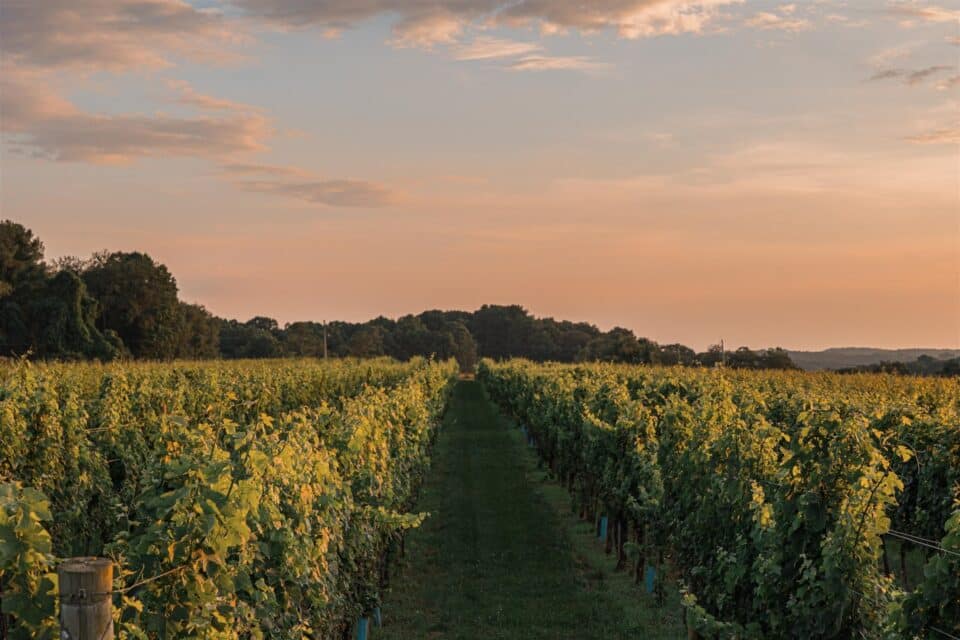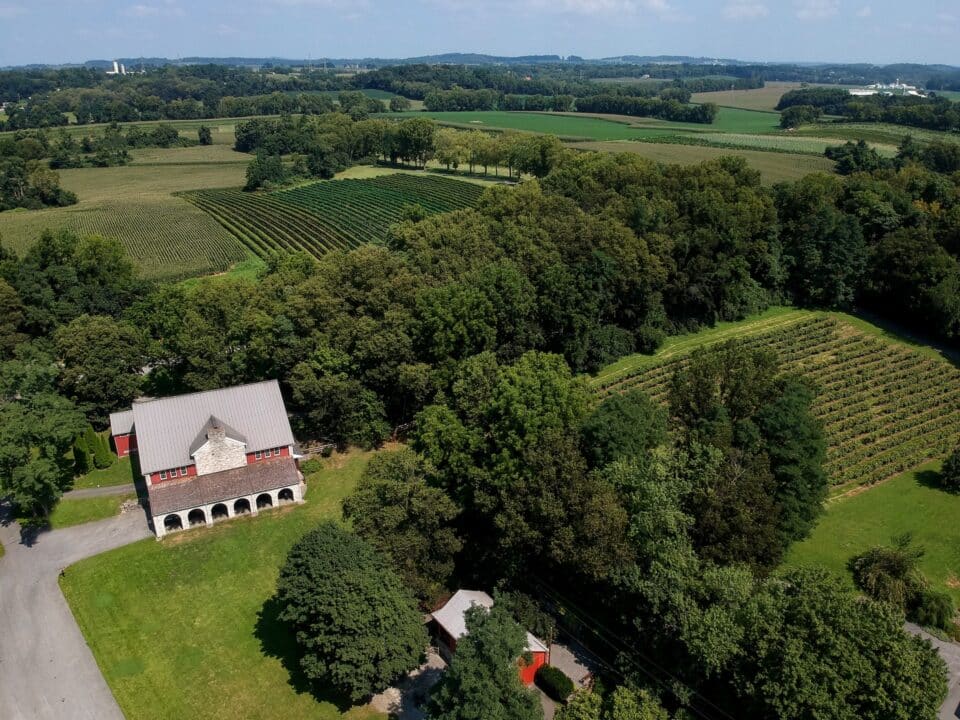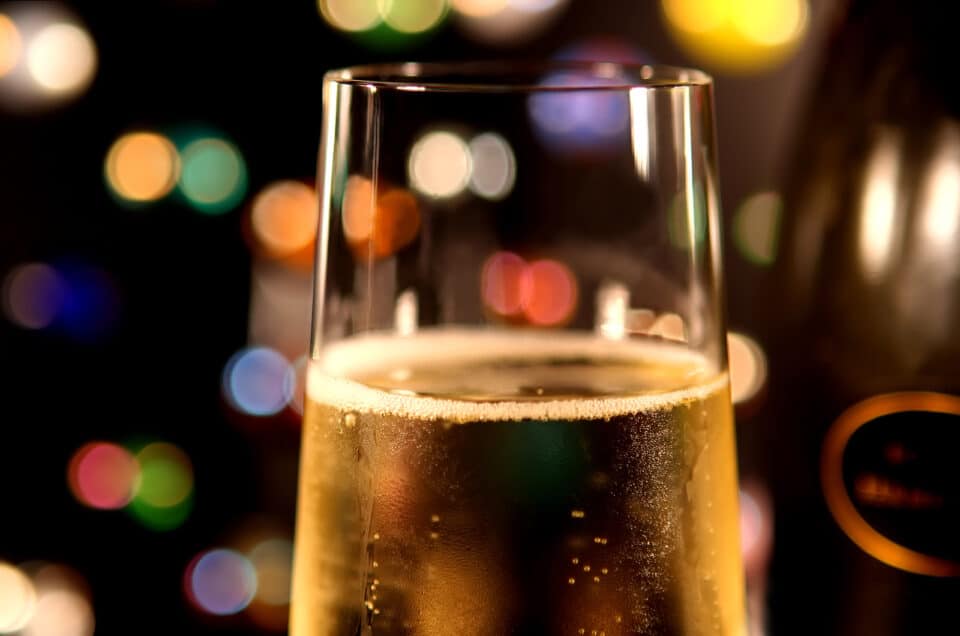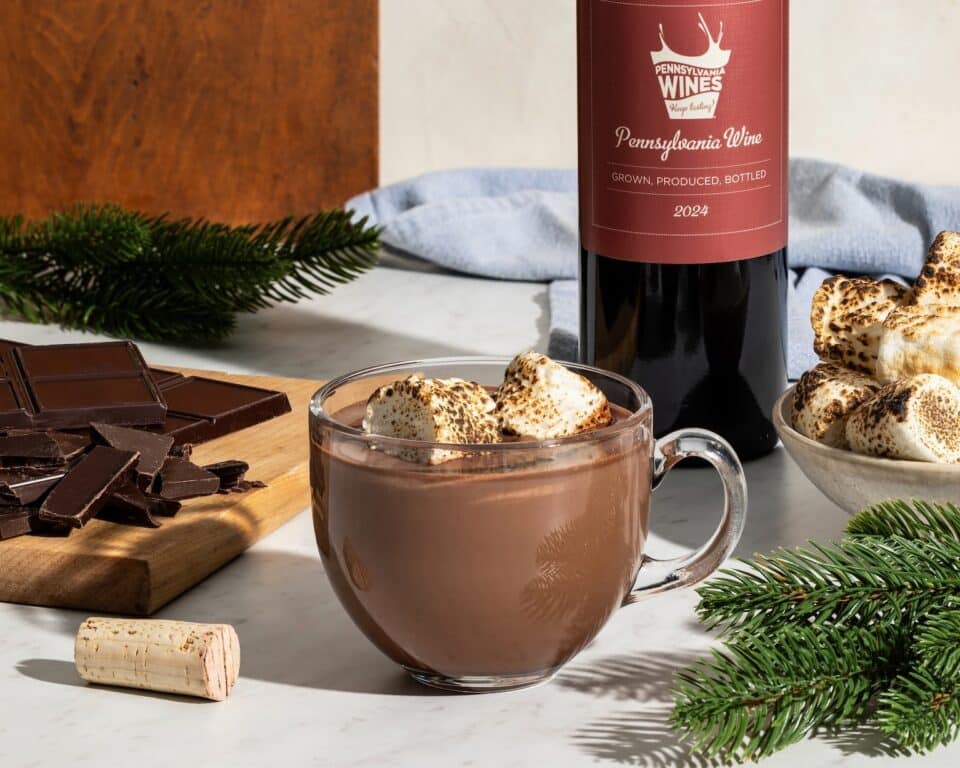Nicholas Ducos has a thing for old warehouses in North Philly. When he’s walking around his Kensington neighborhood or out and about in Fishtown, he keeps his eyes peeled for “For Rent” signs posted on industrial spaces and garages. In fact, this is how he found Mural City Cellar’s new and permanent home, on the corner of Frankford Avenue and Berks Street, in a bustling, foot-traffic-heavy area.
After spotting the lease signage in 2021, he reached out to the building’s owner who simply told him, “You can’t afford this space.” Undeterred, Ducos contacted him again after a great year of growth for his urban winery, and the owner took him more seriously. They negotiated a lease, and now, nearly two years later, Mural City Cellars is on the cusp of opening a 3,000-square-foot production space and tasting room (they’re hoping for a grand opening in Spring 2024).
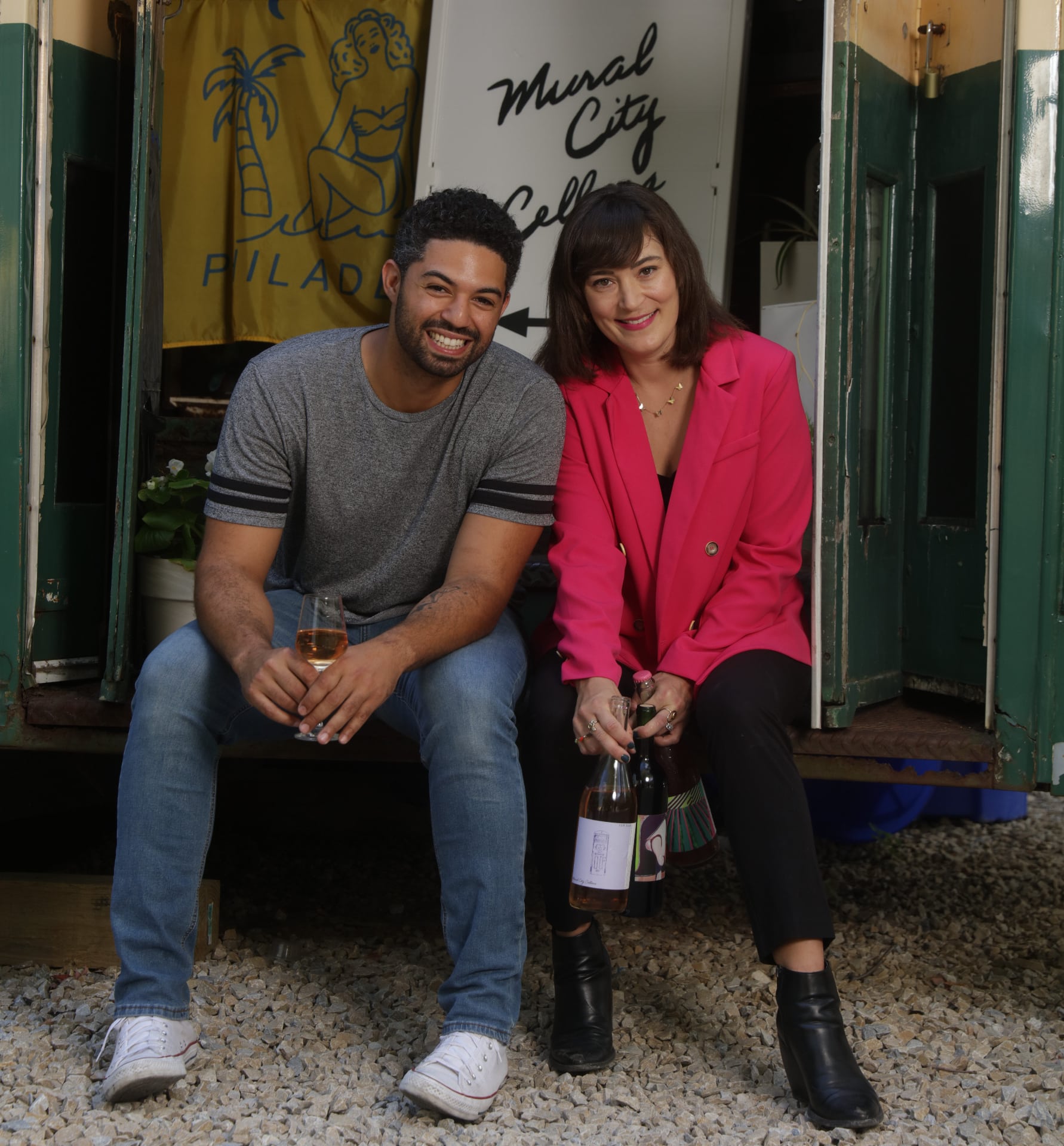
Nicholas Ducos and Francesca Galarus of Mural City Cellars
Ducos and his wife/business partner Francesca Galarus have been on quite a journey to arrive at this moment. Mural City Cellars has operated out of four retail locations in as many years (“It’s pretty outrageous,” Galarus says), all the while maintaining production out of their first warehouse space on Amber Street, just a few blocks away from their home — yes, this location was also obtained through the “sheer luck” of calling a number posted on the side of the building.
Since Mural City Cellar’s official founding in 2021, Ducos and Galarus have focused on meticulous winemaking, using fruit strictly sourced from a 300-mile radius of Philadelphia, including a number of vineyards in Pennsylvania. They’ve also grown a community of friends, fans and customers, introducing mostly Millennial and GenZ Philadelphians to different styles of wines made from regional grapes. Mural City Cellar’s selection includes approachable table wines, like their CSW Red, White and Rosé, offbeat skin contact and pétillant-naturel sparkling wines, more serious single varietals and blends, and vermouths infused with local botanicals.
We enjoyed a great conversation with Ducos and Galarus to learn more about Mural City Cellar’s history, winemaking philosophy and what their lovely new space will be like. Learn more in this PA Vines & Wines Q&A:
PA Eats: When did it first occur to you that owning your own winery might be part of your career path?
Nicholas Ducos: I started off my career as a sommelier. Eventually, I got into winemaking and ended up working for three different wineries. The idea of starting my own winery started in 2016, when I was working for a winery in Napa Valley. I was in a cellar counting the barrels and how many bottles of wine you could make with them. I started doing some mental math to see if it could financially support Francesca and me, and if we theoretically were making and selling the wine. Then in 2017, I was working for another winery in New Zealand, and began doing some more serious number crunching, putting pencil to paper. When I came back, I pitched the idea to Francesca.
Francesca, what was your reaction to this proposition?
Francesca Galarus: I’m the practical one, so at first I said, “I think you’re nuts.” But, I’d tried the wines he’s made, and Nick’s passion and confidence helped get me there. Knowing that we had our real jobs on the side made it a little less scary. He kept working on the projections and numbers, and ultimately I got on board.
What steered you toward opening an urban winery in Philadelphia?
Ducos: We’d been living in Miami, but we moved to Philly in 2017 to be closer to family. I took a job at William Heritage Winery [in Mullica Hill, New Jersey] for 3 years, where I learned the winemaking style of this region, and what grapes are being grown. I met some farmers growing grapes, and began to put together a more actualized idea of what we could do here.
Ultimately, we wanted to build a business in our own neighborhood in North Philly. We were watching these warehouse and industrial spaces get torn down one by one to make room for new construction, and we wanted to find one as our winery. I dragged Francesca through dozens and dozens of warehouses. One day, we were walking our dogs and found our Amber Street space just two blocks from our house.
When did you sign the lease on your Amber Street spot?
Ducos: We got the lease in January of 2020 and signed it in April, not knowing how long things would be delayed because of Covid. We finally got in there at the end of November after various construction delays; we gutted and divided the warehouse into different sections. At this point the wine was ready and we were down to our last few hundred dollars, so we had to open. January 30, 2021, was our grand opening.
Galarus: Amber Street was our production space and just retail spot in the pre-vaccination days of 2021. But people would always ask when we’d open. We started by opening our tasting room a couple days a week and for private tastings, then we put outside tables up, and eventually held more regular hours for people to come in and hang out here.
After making wine for other wineries, how did you develop what Mural City Cellar’s approach or philosophy was going to be?
Ducos: Our winemaking philosophy is still being developed over the course of our tenure. Everything is variable, especially with the weather, and we make what the seasons bring. We don’t force anything, but we always want to highlight acidity and fruit components, and focus on grape varietals that grow well. Mural City Cellars focuses on white wines, rosé and bubbles; of the 13 wines we make every year, we only make two reds. I think that just reflects the strengths of our region.
Galarus: Another part of our philosophy is about being a contributing member of the community. We started out doing that through our CSW Wine Club. We donated a percentage of that directly back to the community; we try to focus on urban agriculture, the arts, and equity in the wine industry. During our first year, we were able to donate almost $10,000 to the East Kensington Neighborhood Association and Mural Arts Philadelphia. Now we do it by donating $1 per bottle of every CSW Wine we sell so that more people can contribute. Most recently, we gave $4,800 to the James Ludlow School which is raising money to install an urban farm to fight food insecurity.
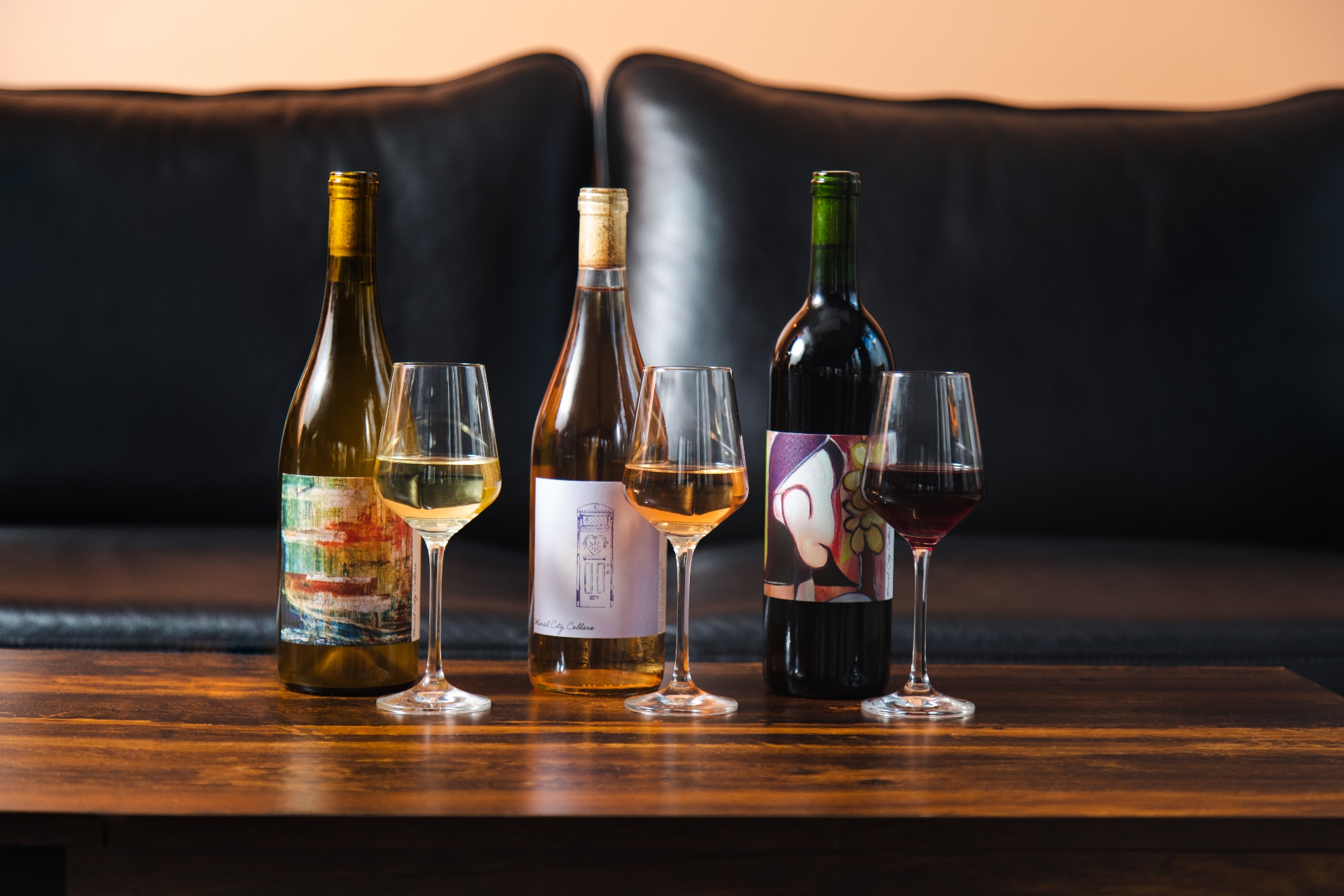
Have you had to update or shift your philosophy as you’ve seen what your guests respond to and want more of?
Ducos: Because we’re in a major city, we’ve noticed that we have to have variety. Most good winemaking regions focus on just a few varietals and do those really really well, like Cabernet Sauvignon and Chardonnay in California. But being an urban winery, our demographic is all over the place. We have to release something new every few months, because people are always asking, “What’s new?” We have to find that happy medium.
Galarus: We’ve made some adjustments along the way. Nick made a beautiful barrel-fermented Chardonnay, it’s one of our favorites and we think it’s one of our best wines. But it’s an extremely hard sell in Fishtown. People don’t want to drink what their moms drink. We are also sometimes surprised by the things that do resonate, like Finato, our vermouth.
How and where do you source your grapes?
Ducos: We focus on farmers within a 300-mile radius of the city. That covers the Finger Lakes in New York down to Virginia, and Western PA to the northern tip of Long Island. A lot of the farmers we work with are focused on sustainability.
In Pennsylvania specifically, we work with a vineyard manager who manages over a dozen vineyards. He’s our go-to for fruit. For instance, he connected us with Equivine, a horse farm and vineyard in Coatesville, PA. We’ve gotten Chardonnay from there, about 6,000 pounds one year. In West Chester, PA, there is a farm called Stag & Thistle where we’ve gotten Pinot Gris, which I think is some of the best in the region. Someone we’ve worked with year over year is Setter Ridge Vineyards in Kutztown, PA; we buy its Semillon and Sauvignon Blanc. There’s also a farm in Lake Erie where we get Chambourcin for our CSW Rosé.
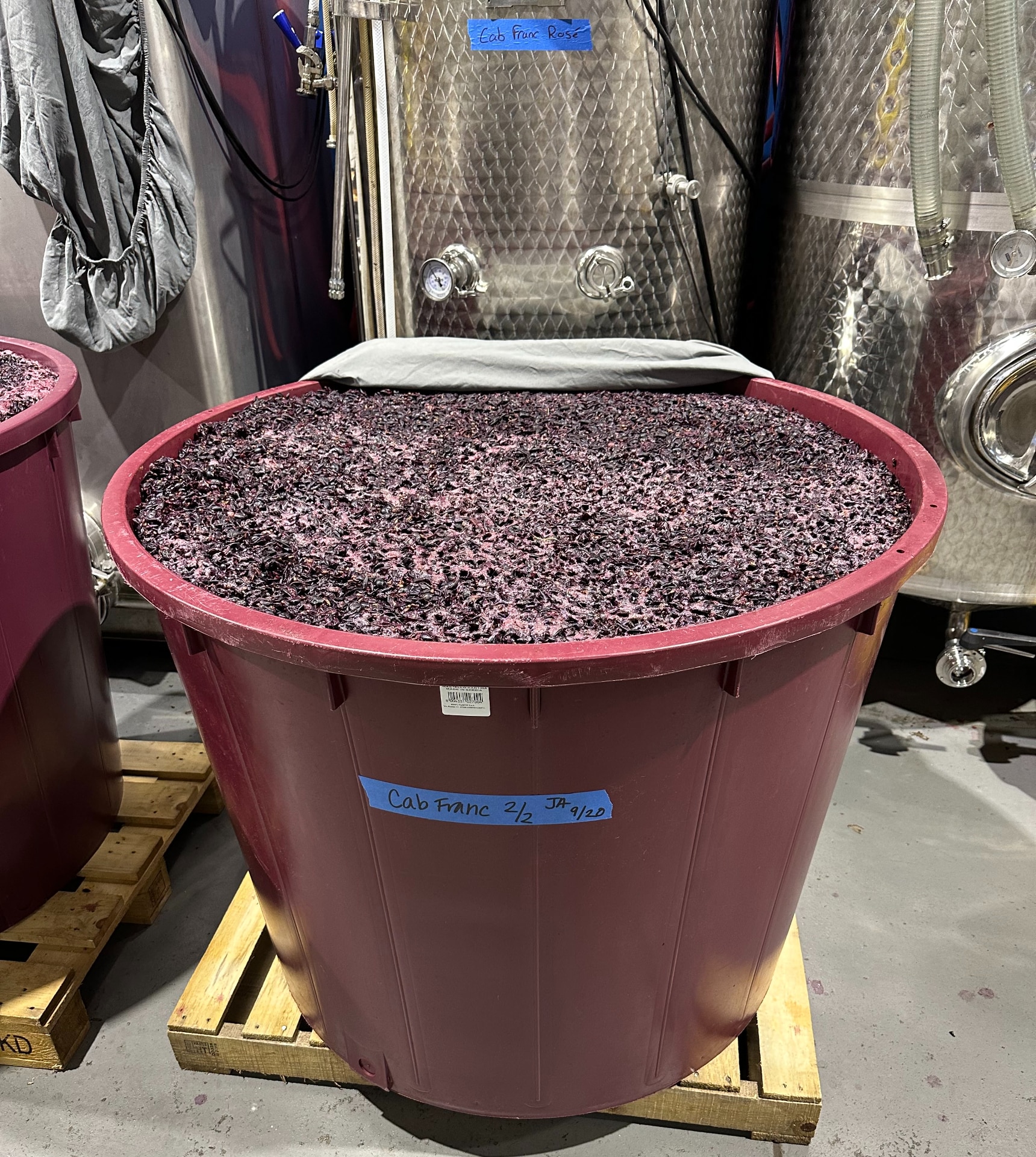
Do you usually get grapes or pressed juice?
Ducos: We work with a lot of grapes, and occasionally with juice. Sometimes it makes more economical sense to have farms press the grapes for us. It can be cheaper and sustainable to juice the fruit there, and they can recompost the pressings. We work with a local compost company for all the pomace we make when we press grapes here, but a lot of them can’t handle the volume and weight.
Mural City Cellars has had a bunch of locations in the past few years. Can you walk us through that?
Galarus: After opening our tasting room on Amber Street, we saw an RFP (from the New Kensington Community Development Corporation) come through for an outdoor space at 2211 Frankford Ave. We applied, and through a community voting process we were fortunate enough to be able to activate that space in 2022 as a wine garden. That was a huge boost for our business. Went from a 1,200-square-foot warehouse to this massive outdoor space that could seat 100 people. We’re really proud of that.
But when the garden closed, Amber Street was in no position to host guests again. We were using it for a lot of storage, but we still wanted a space to host people. We inquired about a former cafe on Susquehanna Street, and the landlord was very open to a non-traditional short-term lease. We were there for 8 months, almost like a pop-up. We experimented with food residencies because there was a kitchen there, and had some really successful collaborators, like Sauce Boy Philly and Amy’s Pastelillos. We were lucky enough to get the garden again, so we were open there for the season in 2023.
What can you tell us about your new space?
Galarus: In the summer of 2022, we signed our lease for 1831 Frankford Ave., right on the corner of Berks. During the pandemic we would take pictures in front of it because we loved the mural there. We’d say, “Imagine if this could be our location, right here on Frankford Ave.”
We’re so excited that we got it! It’s going to be a 3,000-square-foot space, with production in the back and a big tank room with a glass divider. Up front will be a bar and bottle shop, with all of our wines available to-go or be enjoyed there. The menu will have some wines by the glass and flights, including other Pennsylvania wines like Vox Vineti, Galen Glen and Camuna Cellars. We love that our license allows us to sell other PA-made products. We want to give exposure to other producers, and fill in some of the gaps of things we don’t make, like Kosher natural wine, vinifera reds and traditional sparkling wines. It will really be a place to experience the PA wine scene in an old auto body garage. No matter how many urban wineries come to Philly, we’ll always have been the first, the leader and trendsetter of what urban wineries are in the Northeast.
To learn more about Mural City Cellars, including info about its wine club and upcoming pop-ups, wine classes and other events, visit its website. Follow on Instagram for updates on the forthcoming Mural City Cellars production and retail space, as well as news on special sales and product releases.
The PA Vines & Wines series was created in collaboration with the Pennsylvania Wine Association with Round 8, Act 39 grant funding from the Pennsylvania Liquor Control Board (PLCB).
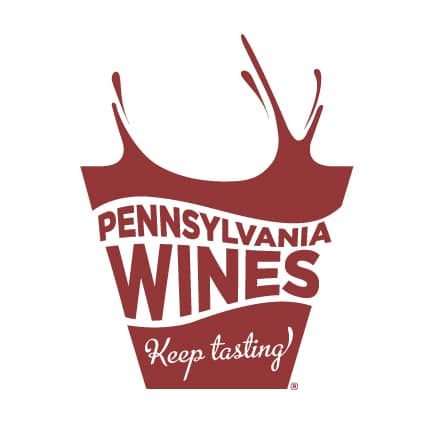
The Pennsylvania Winery Association (PWA) is a trade association that markets and advocates for the limited licensed wineries in Pennsylvania.
- Photos : Courtesy of Mural City Cellars
